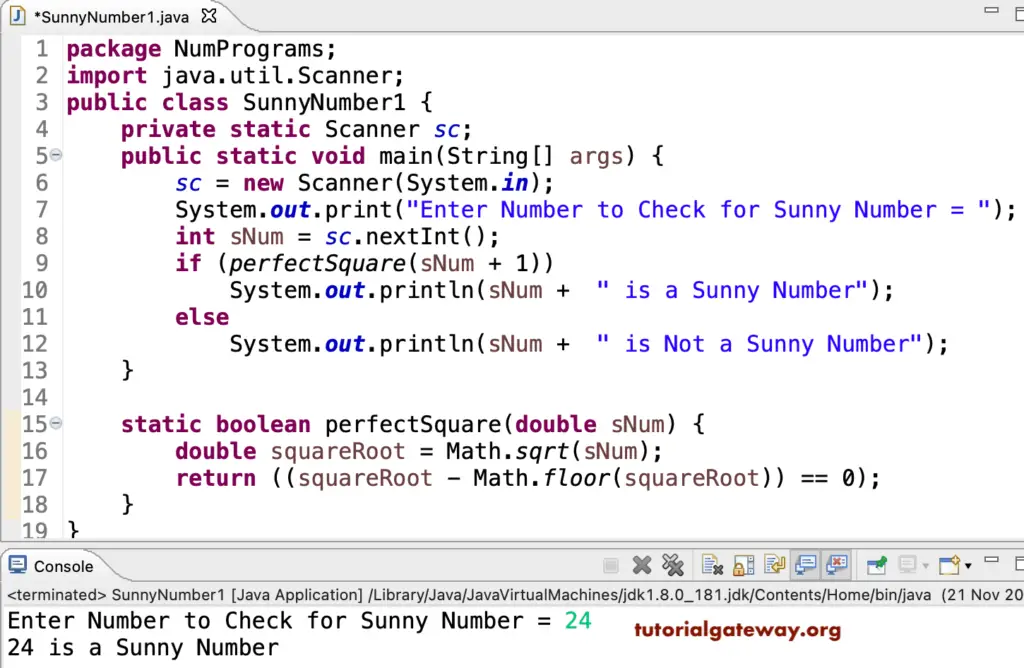Write a Java program to check sunny number or not. Any number (n) can be the sunny number if its successor or the following number (n + 1) is a perfect square. For instance, 23 is because its following number, 24 (23 + 1), is a perfect square of 4.
package NumPrograms;
import java.util.Scanner;
public class SunnyNumber1 {
private static Scanner sc;
public static void main(String[] args) {
sc = new Scanner(System.in);
System.out.print("Enter Number to Check for Sunny Number = ");
int sNum = sc.nextInt();
if (perfectSquare(sNum + 1))
{
System.out.println(sNum + " is a Sunny Number");
}
else
{
System.out.println(sNum + " is Not a Sunny Number");
}
}
static boolean perfectSquare(double sNum) {
double squareRoot = Math.sqrt(sNum);
return ((squareRoot - Math.floor(squareRoot)) == 0);
}
}

This program accepts the start and end range and prints the sunny numbers between a range or 1 to N.
package NumPrograms;
import java.util.Scanner;
public class Example2 {
private static Scanner sc;
public static void main(String[] args) {
sc = new Scanner(System.in);
System.out.print("Enter Start and End Range = ");
int start = sc.nextInt();
int end = sc.nextInt();
System.out.println("The List of Numbers from " + start + " to " + end);
for(int i = start; i <= end; i++)
{
if (perfectSquare(i))
{
System.out.print(i + " ");
}
}
}
static boolean perfectSquare(int sNum) {
if(Math.sqrt(sNum + 1) % 1 == 0)
{
return true;
}
else
{
return false;
}
}
}
Enter Start and End Range = 1 1000
The List of Numbers from 1 to 1000
3 8 15 24 35 48 63 80 99 120 143 168 195 224 255 288 323 360 399 440 483 528 575 624 675 728 783 840 899 960 